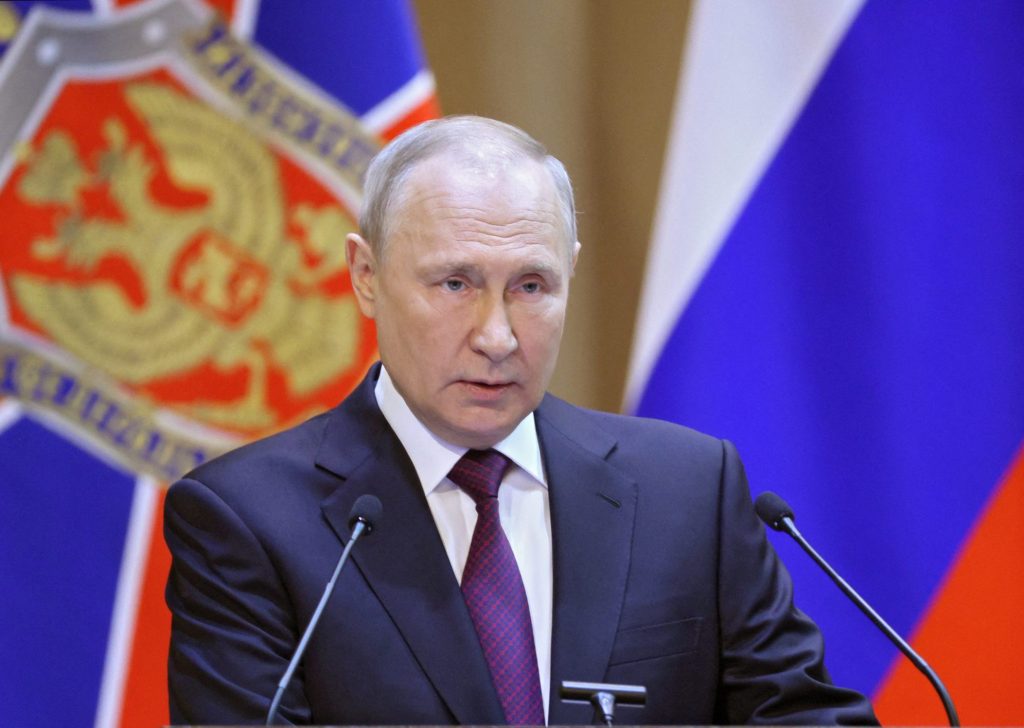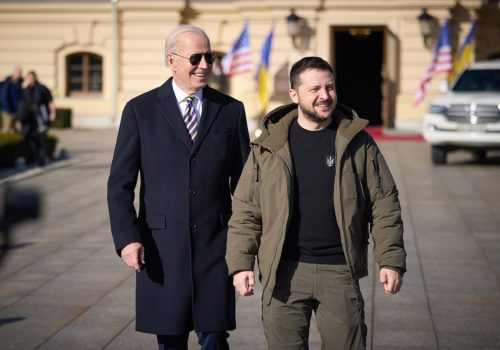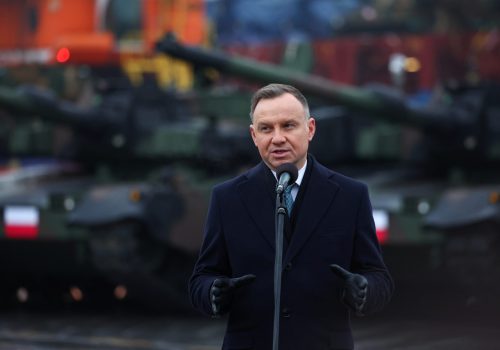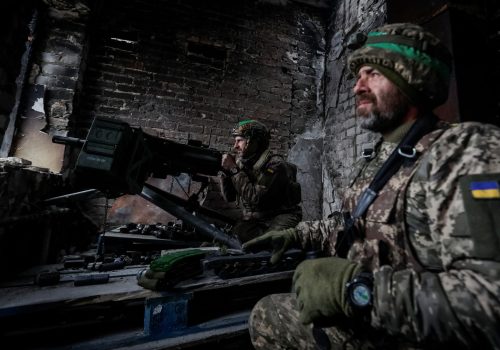As the full-scale invasion of Ukraine entered its second year last month, Western leaders were keen to demonstrate their continued determination to prevent a Russian victory. At the same time, with no end in sight to what is already by far the largest European conflict since World War II, calls are mounting for a compromise that would end the fighting. Such proposals typically assume a land-for-peace formula that would see Ukraine surrendering part of its sovereign territory and millions of its citizens to permanent Russian occupation.
While the desire for peace is perfectly understandable, calls to appease Putin by handing him a partial victory in Ukraine ignore the lessons of history and would almost certainly lead to more war. If the experience of the 1930s taught the world anything, it is that appeasement merely encourages dictators to go further. Like Hitler before him, Putin will not stop until he is stopped.
Long before last year’s full-scale invasion of Ukraine, observers were already noting the obvious parallels between Russia’s trajectory under Vladimir Putin and the rise of Nazi Germany. Both regimes were deeply revisionist, with Hitler’s quest to avenge German defeat in World War I mirrored by Putin’s bitter resentment over Russia’s perceived humiliation following the Soviet collapse.
In foreign policy, the similarities were even more striking. Russia’s 2008 invasion of Georgia and 2014 occupation of Ukraine’s Crimean peninsula drew widespread comparisons with Hitler’s early foreign policy successes, such as the Anschluss with Austria and the annexation of the Sudetenland. In an alarming echo of 1930s diplomacy, these early examples of Russian aggression met with a similarly underwhelming international response. Just as Hitler was encouraged by the appeasement policies of the West to swallow the rest of Czechoslovakia and invade Poland, the weak Western response to Russian aggression in Georgia and Ukraine set the stage for last year’s full-scale invasion.
Stay updated
As the world watches the Russian invasion of Ukraine unfold, UkraineAlert delivers the best Atlantic Council expert insight and analysis on Ukraine twice a week directly to your inbox.
Like Hitler before him, Putin has framed his attack on Ukraine as a campaign to defend ethnic compatriots who have found themselves beyond the borders of the motherland. Given the extent of the Russian diaspora throughout the former USSR and beyond, this creates considerable scope for further expansionist wars.
Putin’s self-assumed position as guardian of Russians abroad, along with the Kremlin’s conveniently flexible interpretation of who qualifies as “Russian,” potentially endangers a long list of countries with significant Russian minorities including Kazakhstan, Moldova, Belarus, Latvia, and Estonia. All have prior experience of the Russian and Soviet empires; all remain vulnerable to Kremlin influence and potential military intervention.
Since the mid-2000s, Russia has been promoting its imperial agenda via the so-called “Russian World” ideology, which envisions Russia as the guardian of a unique civilization extending beyond the borders of today’s Russian Federation and united by the Russian language, Slavic ethnicity, and the Orthodox faith. In 2007, the Kremlin established the Russkiy Mir Foundation (RMF) to serve as a platform for Russia’s influence operations. Former Russian President Dmitry Medvedev referred to the RMF as the “key instrument of Russian soft power.”
Eurasia Center events

If Putin is not stopped in Ukraine, the countries most immediately at risk are Moldova, Kazakhstan, and Belarus. The latter two both have authoritarian regimes that currently enjoy Moscow’s support but are nevertheless nervous about Russia’s expansionist ambitions.
Kazakhstan is vulnerable due to its isolated geographical position between Russia and China as the world’s largest landlocked country. Russian nationalists have long identified border regions in northern Kazakhstan with large ethnic Russian populations as potential targets for a new imperial adventure. With the Kazakh leadership refusing to publicly back the invasion of Ukraine, Kremlin propagandists have recently begun discussing the possibility of future military intervention.
Belarus is already deeply involved in the attack on Ukraine and served as a launch pad for the invasion in February 2022. This role as junior partner in Putin’s war reflects Belarusian dictator Alyaksandr Lukashenka’s dependence on the Kremlin, which intervened to prop up his regime following a pro-democracy uprising in August 2020. Members of Belarus’s exiled opposition argue that the country is already effectively under Russian occupation. While some would question this conclusion, today’s Belarus is clearly in danger of being either officially or unofficially annexed by Russia.
Meanwhile, undeterred by Russia’s military setbacks in Ukraine, the Kremlin has recently begun escalating its rhetoric against Moldova. In early February, Russian Foreign Minister Sergei Lavrov claimed that the West seeks to turn the country into an “anti-Russian project” and warned that Moldova could become “the next Ukraine.” Weeks later, Moldovan President Maia Sandu accused Russia of plotting to overthrow her pro-EU government.
At present, it is difficult to predict where Russia is most likely to strike next. The one thing that can be said with any degree of certainty is that if Moscow is not defeated in Ukraine, it will continue to pursue expansionist policies. In other words, the future peace and stability of Eurasia hinges on the outcome of the war in Ukraine.
All those currently calling for compromise with the Kremlin in Ukraine would be wise to recall that policies of appeasement toward Hitler were widely popular at the time among populations desperate to avoid another world war. We now know how disastrously misguided those policies were and have no excuses for repeating the mistake. Defeating Putin in Ukraine will not be easy, but it is the only way to secure a lasting peace and convince Moscow that the era of easy victories over vulnerable neighbors is over.
Arman Mahmoudian is a PhD candidate and international affairs researcher at the University of South Florida.
Further reading
The views expressed in UkraineAlert are solely those of the authors and do not necessarily reflect the views of the Atlantic Council, its staff, or its supporters.

The Eurasia Center’s mission is to enhance transatlantic cooperation in promoting stability, democratic values and prosperity in Eurasia, from Eastern Europe and Turkey in the West to the Caucasus, Russia and Central Asia in the East.
Follow us on social media
and support our work
Image: Russian President Vladimir Putin delivers a speech during a meeting of the Federal Security Service collegium in Moscow. February 28, 2023. (Sputnik/Gavriil Grigorov/Pool via REUTERS)




